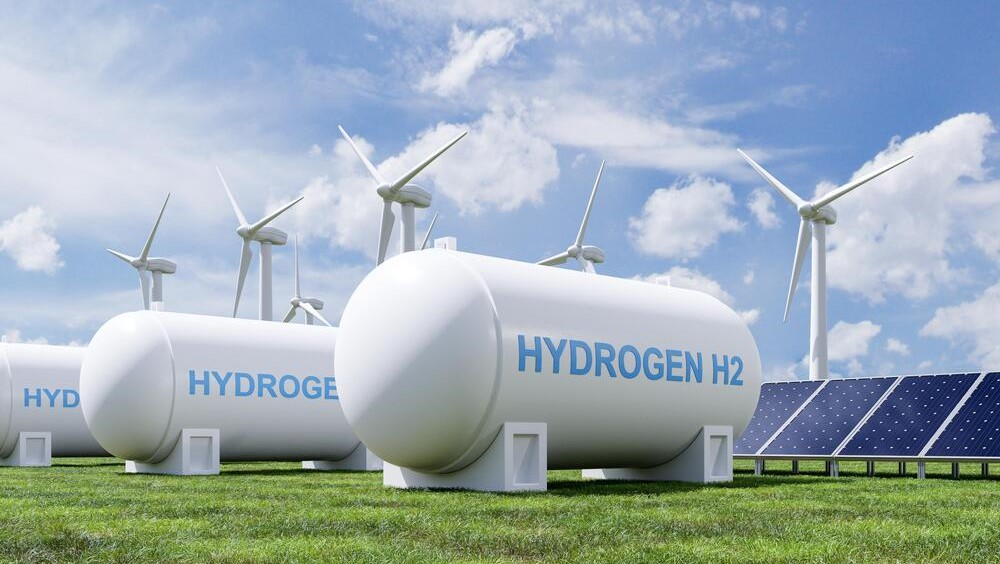The US Department of Energy on Aug. 17 awarded $34 million to 19 industry- and university-led research projects that will advance cutting-edge technology solutions for clean hydrogen. Several of the projects address biomass-to-hydrogen technologies.
The selected projects will focus on developing technologies that could help produce clean hydrogen at lower cost and with less energy; exploring ways to produce hydrogen using biomass, effluent waters from oil and natural gas development and production, and other wastes; and expanding options for safe and efficient hydrogen transport and storage across the nation.
Several funded projects address the potential for conversion of biomass and waste feedstocks into hydrogen.
North Carolina State University was awarded nearly $1.25 million in DOE funding to a support a project that aims to develop a redox-based, radically engineered modular air separation unit (REM-ASU) with significant reductions in capital cost and energy consumption for oxygen generation when compared to state-of-the-art air separation technologies. As part of the project, the team has proposed to integrate a 5-10 megawatt (MW) modular biomass gasifier with greater than 35 percent energy and cost reduction for greater than 98 percent oxygen regeneration compared to conventional ASUs.
California-based Palo Alto Research Center Inc. will also receive nearly $1.25 million in DOE funding to support the development of a fast, high-capacity reversible oxygen sorbent that enables an oxygen integrated unit for modular biomass conversion to hydrogen. If successful, the project will demonstrate the potential for a small-scale, modular ASU to produce clean, carbon-free energy from local biomass, providing communities with an alternative to trucks or pipelines transferring hydrogen. The DOE said the project could also provide a route to fuel diversification and energy resiliency and bring the clean energy economy and jobs to rural and historically disadvantaged communities.
The State University of New York, on behalf of University at Buffalo, will receive $1.25 million to support efforts to develop carbon molecular sieve hollow fiber composite membranes with hierarchical chemistries and structures for oxygen production from air, enabling low-cost modular hydrogen production from biomasses or wastes. The team intends to address the requirement of advancing modular air separation to support modular gasification-based hydrogen production. If successfully developed, the technology would produce oxygen at a lower cost than cryogenic-based air separation at small scales and benefit small modular energy systems. This would also drive a reduction in carbon dioxide emissions and spur economic growth and domestic job creation.
North Carolina-based Susteon Inc. will receive $1.25 million in DOE funding to support the development of a process that produces high-purity oxygen from air at significantly lower cost than state-of-the-art commercial technologies. The proposed process technology can produce oxygen with purity greater than 95 percent and power consumption less than 230 kilowatt hours (kWh) per ton of oxygen — using only 11.5 megawatt hours MWh to form 50 metric tons of oxygen. As part of the project, Susteon intends to perform a high-fidelity techno-economic analysis and life-cycle analysis to develop a technology commercialization plan, which would involve obtaining an accurate price estimate for the high-purity oxygen for related biomass gasification.
Colorado-based TDA Research Inc. will also receive $1.25 million in DOE funding to develop the development of modular, sorbent-based air separation unit (ASU) for oxygen production to support low-cost hydrogen production from gasification of biomass and/or wastes. The team intends to demonstrate high-purity (greater than 98 percent by volume, preferably above 99.5 percent by volume) oxygen generation from ambient air using a process that is more compact, more affordable, and more efficient than comparable cryogenic-based ASUs. The new oxygen production system will be sized to support 5-50 MW gasification systems (30-300 metric ton per day of oxygen flow) for zero-carbon hydrogen production.
Tags: Biomass, DOE, Hydrogen, Projects



Recent Posts
Hyundai Glovis to Retrofit Seven PCTCs with Avikus AI Navigation System
Super Terminais orders three more Konecranes Gottwald ESP.10 Mobile Harbor cranes
Covestro and HGK Shipping Extend Partnership to 2040 with Focus on Wind-Assisted Vessel Retrofit
Artemis Technologies Successfully Demonstrates 100 Percent Electric Crew Transfer Vessel at Aberdeen Offshore Wind Farm
IACS Council Advances Decarbonisation, Digitalisation and Governance Priorities at C91 Meeting in Beijing
Japan Launches Major R&D Project to Advance Shipbuilding with Alternative Fuels
EU Adopts Emissions Standards for Low Carbon Hydrogen to Bolster Clean Energy Market
Trafigura to Implement ZeroNorth’s AI Platform Across Global Fleet